
OR
Editorial
CIAA and Corruption in Nepal
Published On: February 13, 2023 07:50 AM NPT By: Republica | @RepublicaNepal
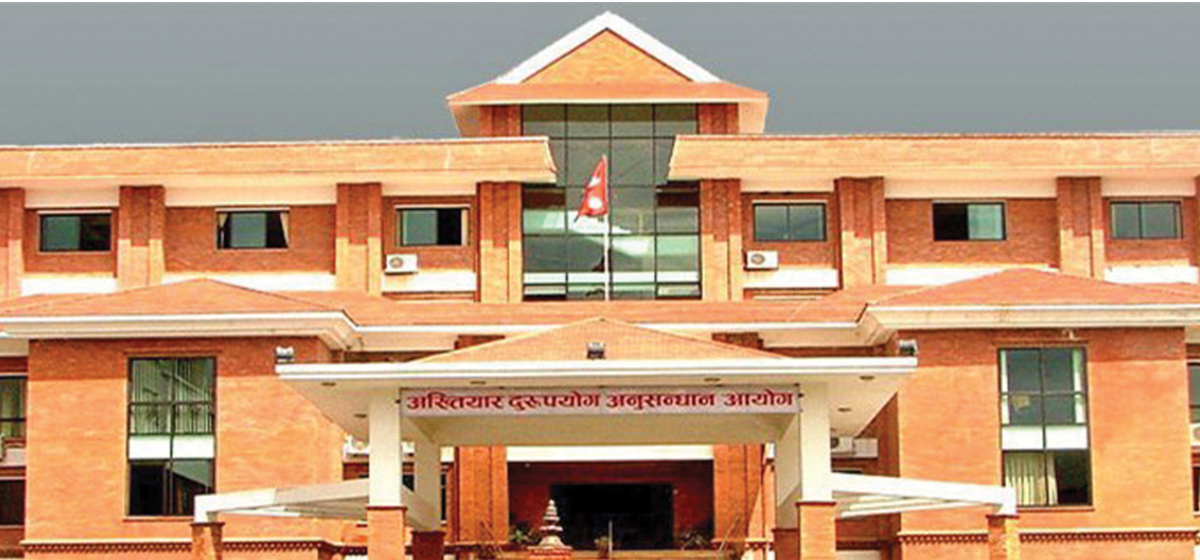
Despite the Constitution of Nepal 2015 envisioning a clean, efficient, fair, transparent, and corruption-free public administration, poverty and social injustice in the country continue to thrive due to rampant corruption in public, private, community-owned, and even non-governmental sectors. Policy corruption causes the country to lose billions of rupees in revenue annually, hindering sustainable development. Transparency International's Corruption Perception Index ranked Nepal 110th globally with only 34 out of 100 marks in 2022, highlighting its poor performance in controlling corruption, further reinforcing the urgent need to tackle the issue.
It seems corruption is an insidious force that has permeated every level of society, resulting in dismal social, economic, and political development. Despite its destructive impact, corruption has grown more entrenched and widespread, infecting virtually every public and private development project, even the so-called projects of national pride. Consequently, the quality of these initiatives is woefully substandard. The situation is such that no development project, regardless of size or national significance, is immune to bribery and illicit financial gain.
As a constitutional anti-corruption body, the CIAA has been active to discourage corruption. However, the Nepali Army, courts of law, policy decisions of the Council of Ministers, and private and non-governmental organizations are still out of the purview of the CIAA. Everybody knows a lot of wrong-doings are happening in these sectors but still there is nothing that can seemingly be done about them.
Opening all these sectors to CIAA’s scrutiny at once may seem daunting, but it’s crucial to bridge the corruption gap. So, maybe as a first step toward that direction, we should start with allowing the CIAA to scrutinize all decisions of the Council of Ministers – policy or otherwise. This is also what the CIAA has been demanding for a long time. The truth is because of this provision there has been a greater tendency among the policy-makers to forward matters to the cabinet for approval even if those matters can be approved by a lower level in the government hierarchy such as the minister or the secretary level, to avoid investigation by the CIAA. No doubt, corruption has found a tricky way to flourish.
However, the bitter reality is the demand to bring the cabinet’s policy decisions under CIAA scrutiny has not been addressed in the amendment bill registered at the National Assembly. Apart from the policy decisions of the federal government, the bill seeks to keep the policy decisions of even the provincial governments away from the purview of the CIAA!
Similarly, our anti-corruption laws are yet to be aligned with the UN Convention against Corruption of which Nepal is a signatory. Two bills to amend the anti-corruption laws of the country have been pending at the National Assembly, the upper house of parliament, for the past three years. That goes a long way to explain the priority the government attaches to fighting corruption.
Amid all this, the CIAA organized a function to mark its 32nd anniversary last Saturday, making a strong call to action against corruption. On the occasion, the president declared corruption an insidious force impeding the country's progress and emphasized the need to eradicate it. The prime minister made a resolute commitment to supporting the CIAA in their fight against corruption. The CIAA's chief commissioner and commissioners called for greater authority to effectively combat corruption, underscoring the urgency of biting down on corrupt practices to ensure the success of their anti-corruption campaign. Despite these pledges against corruption being made every year for the past many years, corruption continues to rise in Nepal. The repetitive nature of these pledges renders them mere rituals devoid of any real impact.
So, the fate of the country's battle against corruption hinges on the transformative actions of the president, prime minister, and CIAA officials. The prime minister must galvanize parliament to amend the anti-corruption bill, endowing the CIAA with the authority to scrutinize all government decisions – policy or otherwise - and investigate the private sector. The anti-corruption laws must be aligned with the UN Convention against corruption, and the prime minister must ensure that parliament enacts these changes. The president must exercise her power to reject any bill that fails to address these concerns, as she did with the citizenship bill! Additionally, the CIAA must demonstrate courage by investigating high-profile corruption scandals, including the Maoist cantonment scam and allegations of wrongdoing against the current prime minister.
The country's future depends on whether these leaders can rise to the occasion and fulfill their responsibilities. Let’s hope their commitment to fight corruption is not just lip-service.
You May Like This
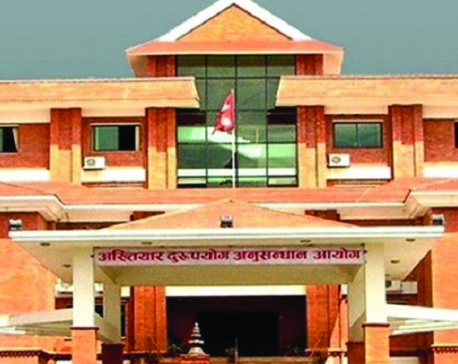
Anti-graft body files corruption cases against 1,212 individuals in FY 2019/20
KATHMANDU, Dec 25: The Commission for the Investigation of Abuse of Authority (CIAA) has filed a total 441 cases against... Read More...

CIAA Commissioner Pathak admits he received bribe, says leaked video (with video)
KATHMANDU, Feb. 15: Commissioner of the Commission for Investigation of Abuse of Authority (CIAA), Raj Narayan Pathak, who stepped down... Read More...
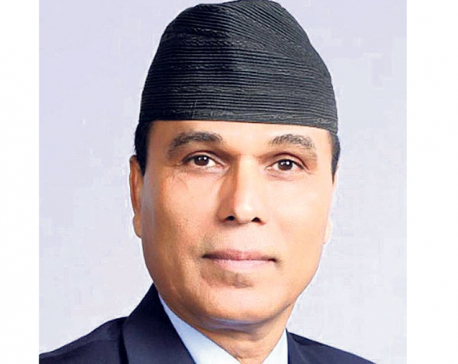
CIAA sues ex-minister Pandey, 20 others for shoddy work on Sikta
KATHMANDU, Dec 8: CIAA on Friday filed a corruption case against former Minister Bikram Pandey and other 2o individuals on charge... Read More...




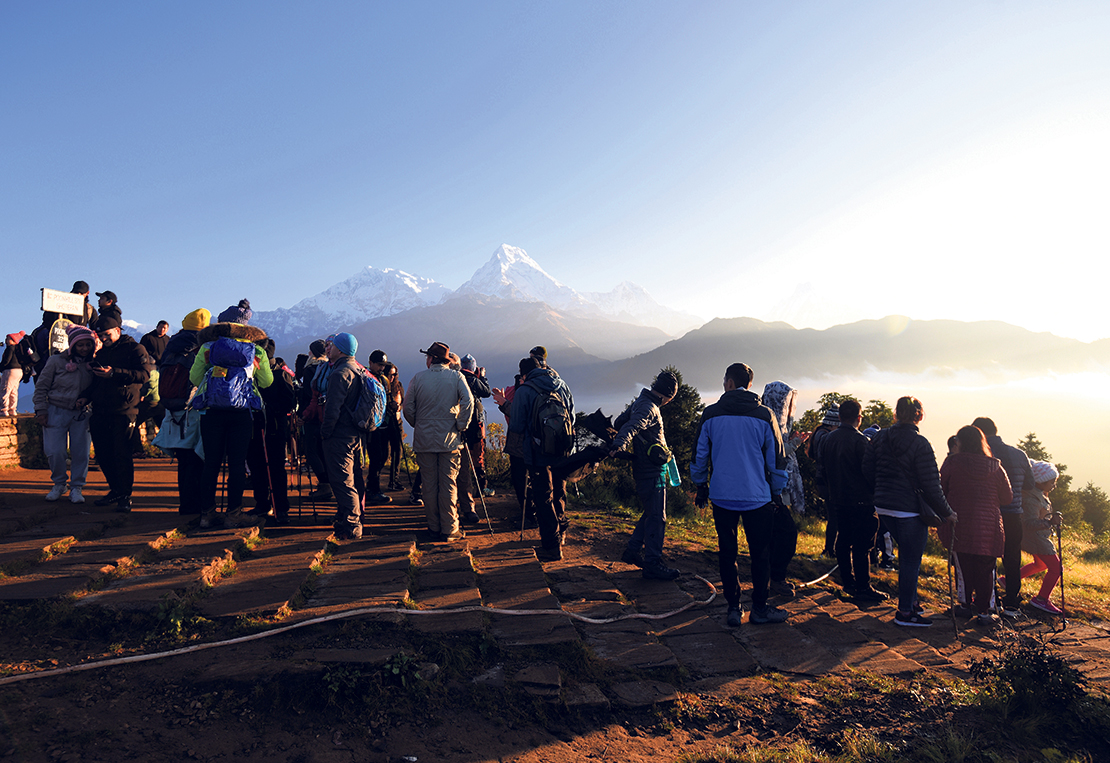

Just In
- Power supply to be affected in parts of Kathmandu Valley today as NEA expedites repair works
- Godepani welcomes over 31,000 foreign tourists in a year
- Private sector leads hydropower generation over government
- Weather expected to be mainly fair in most parts of the country today
- 120 snow leopards found in Dolpa, survey result reveals
- India funds a school building construction in Darchula
- Exploring opportunities and Challenges of Increasing Online Transactions in Nepal
- Lack of investment-friendly laws raises concerns as Investment Summit approaches









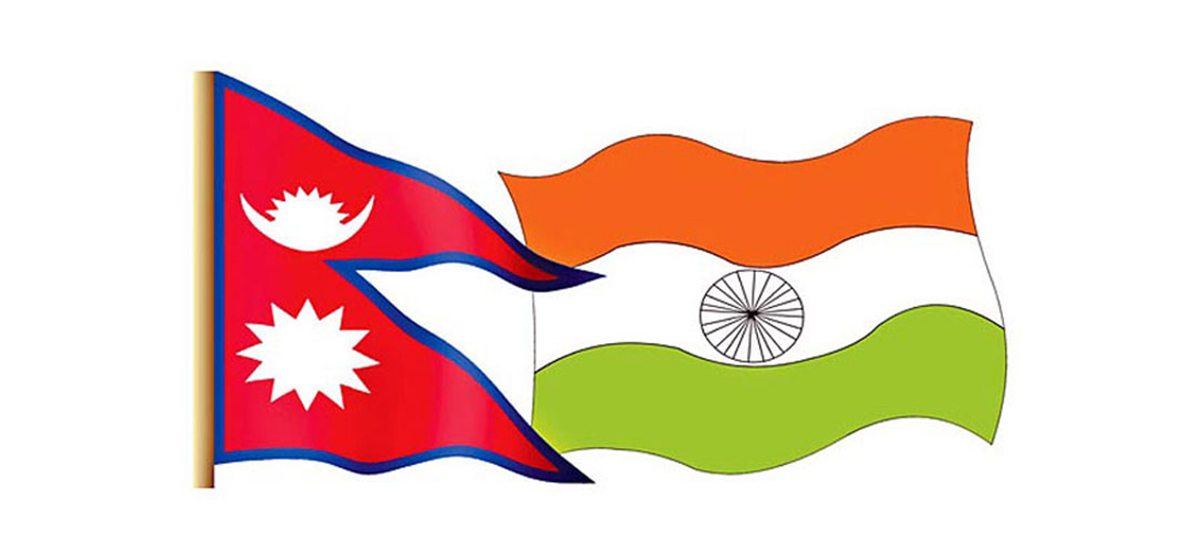

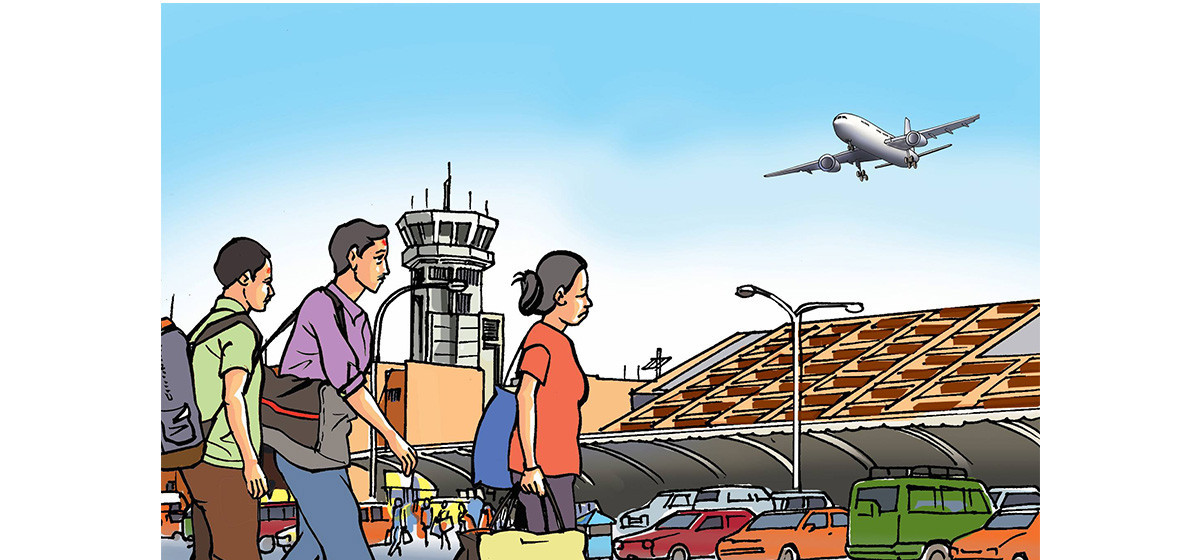
Leave A Comment